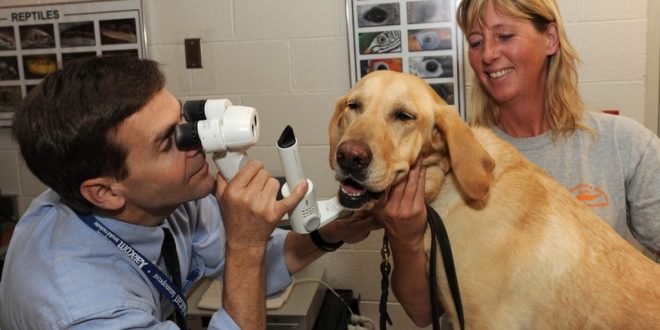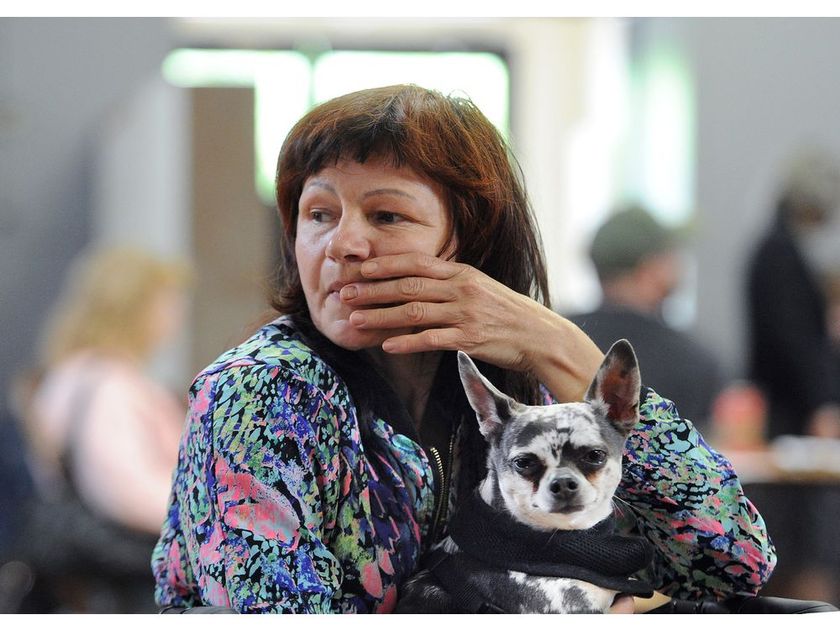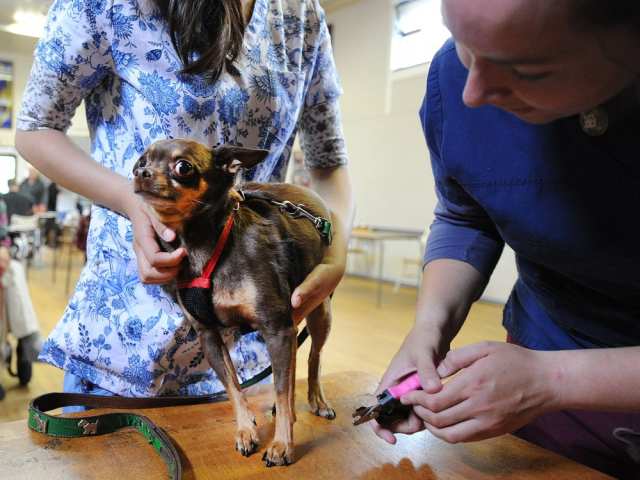Paws for hope has been running free veterinary clinics for homeless and low income pet owners in New Westminster. The clinics provide free care to those who love their pets, but can’t provide for them. Shawn Llewellyn, Veterinarian and board president at Paws for Hope, has been running the volunteer clinics since they started six years ago.
Paws for hope
“We know that pets mean a great deal to the homeless and low income, and for those with mental health concerns, pets are often their only companion. Pets can help them get through large barriers in society. We recognize that, and through Paws for Hope we can give back to those who need the help.”
Paws for Hope partners work with community groups that work with homeless and low income people to get the word out that their clinics provides basics like shots, de-worming, claw-clipping, for dogs and cats. They also hand out bags of food, leashes, collars and other pet accessories.
Paws for Hope is also there when more followup is required.
Carolyn Lemarchand attended with the 9-year-old Yorki-Poo, Sunny, who she calls “my everything.” Sunny follows her around the house, plays chase and sleeps by her bed each night. Lemarchand says Sunny has become a kind of therapist for the mentally ill and homeless she volunteers with.
“They just love her and it makes me feel so good in my heart that they accept her.”
Lemarchand has challenges too — Sunny is blind due to glaucoma. “I’ve just learned she’s in pain,” said Lemarchand. “I don’t have the money to have her eye done.”
Melissa Stephens, a veterinarian on volunteer duty, quickly reassures Lemarchand.
“We’re going to help that. She has a bit of glaucoma in her eye. She’s already blind. We are going to take that eye out so she isn’t in any pain. Paws for Hope is going to cover that.”
Paws for Hope tries to identify dogs and cats that need surgery or dental care, and sets aside a budget for those surgeries to be provided at a later date.
Kathy Powelson, founder of Paws for Hope, said the budget for clinics and follow up treatments can be up to $10,000 per clinic.
“We’ve made that commitment that any animal that needs care beyond what we can provide here gets that treatment.”
Powelson said those with lower financial means make excellent pet owners, even when they are homeless. Most of the animals they see are as well-loved as healthy as those they see in private practice, and the dogs tend to be very well socialized.
“They are out more, they are with more people experiencing different situations, not sitting at home alone for 10 hour a day, and because they are out more they are often at a healthier body weight.”
Paws for Hope runs from three to six clinics a year, and is largely dependent on donations, said Powelson. For information on how to help, go to pawsforhope.org.
Reference: Vancouversun
Share your thoughts with us in the comments below!

 DogExpress
DogExpress



















 in Chandigarh, India.
in Chandigarh, India. 
